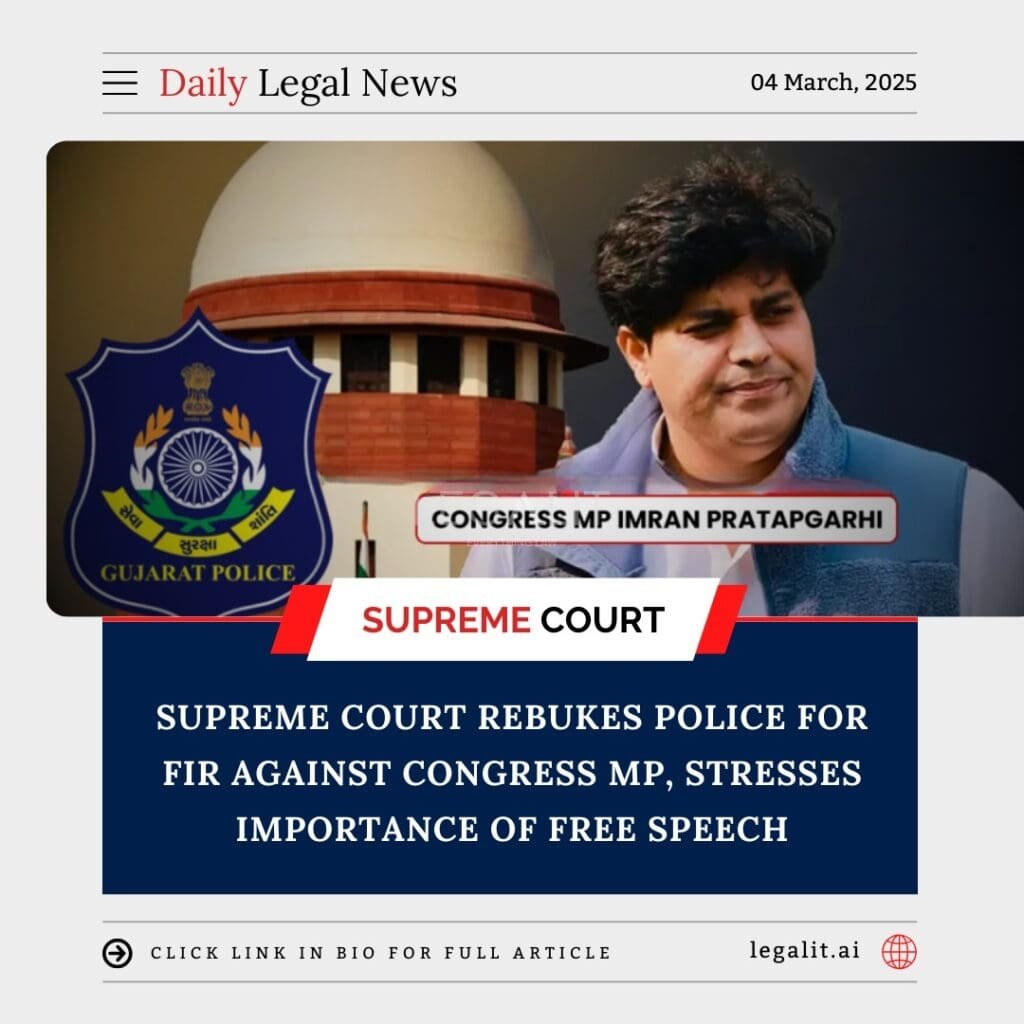
Background
The Supreme Court strongly criticized the police for filing an FIR against a Congress MP over alleged remarks, emphasizing that law enforcement must develop a mature understanding of free speech, especially after 75 years of India’s Constitution. The bench was hearing a petition challenging the FIR, which was registered under provisions of the Indian Penal Code (IPC) relating to hate speech and incitement.
The case revolved around a speech made by the Congress MP during a political event, which was deemed offensive by the police. The complainant alleged that the remarks had the potential to disturb public order and incite unrest. However, the MP contended that the speech was made in a political context, criticizing government policies and did not warrant criminal prosecution.
Court’s Rationale
The Supreme Court, while staying the FIR, made strong observations about the police’s handling of free speech cases. The bench noted that:
- The right to free speech and expression is a fundamental right under Article 19(1)(a) of the Constitution, and restrictions under Article 19(2) must be narrowly interpreted.
- The police should not misuse criminal law to suppress political dissent or criticism of the government.
- A mature democracy must tolerate political speech, even if it is sharp or uncomfortable, as long as it does not cross the threshold of incitement to violence.
- The abuse of FIRs in politically motivated cases has been observed in the past, and courts must act as guardians of constitutional freedoms.
The bench reprimanded the police for filing cases against political leaders merely for expressing their views and stated that law enforcement authorities must develop a better appreciation of free speech, especially after 75 years of India’s independence.
Existing Measures
The Supreme Court has previously ruled on multiple occasions that political speech, even if harsh or critical, cannot be criminalized unless it directly incites violence or falls within the strict restrictions of Article 19(2). Some key precedents include:
- Shreya Singhal v. Union of India (2015): The Court struck down Section 66A of the IT Act, reinforcing the principle that vague laws cannot be used to suppress free speech.
- Kedar Nath Singh v. State of Bihar (1962): The ruling established that only speech that incites violence against the government can be considered seditious, not mere criticism.
- Recent judgments have emphasized the need for a strict threshold before registering FIRs in free speech cases, preventing their use as a tool of political harassment.
Conclusion
The Supreme Court’s ruling is a strong reminder that the police should act as upholders of the Constitution rather than political tools to suppress dissent. The judgment reinforces the need for law enforcement agencies to exercise greater restraint, fairness, and legal understanding before registering cases against politicians and public figures. The ruling sets an important precedent, ensuring that free speech remains a cornerstone of Indian democracy, protected even in contentious political debates.